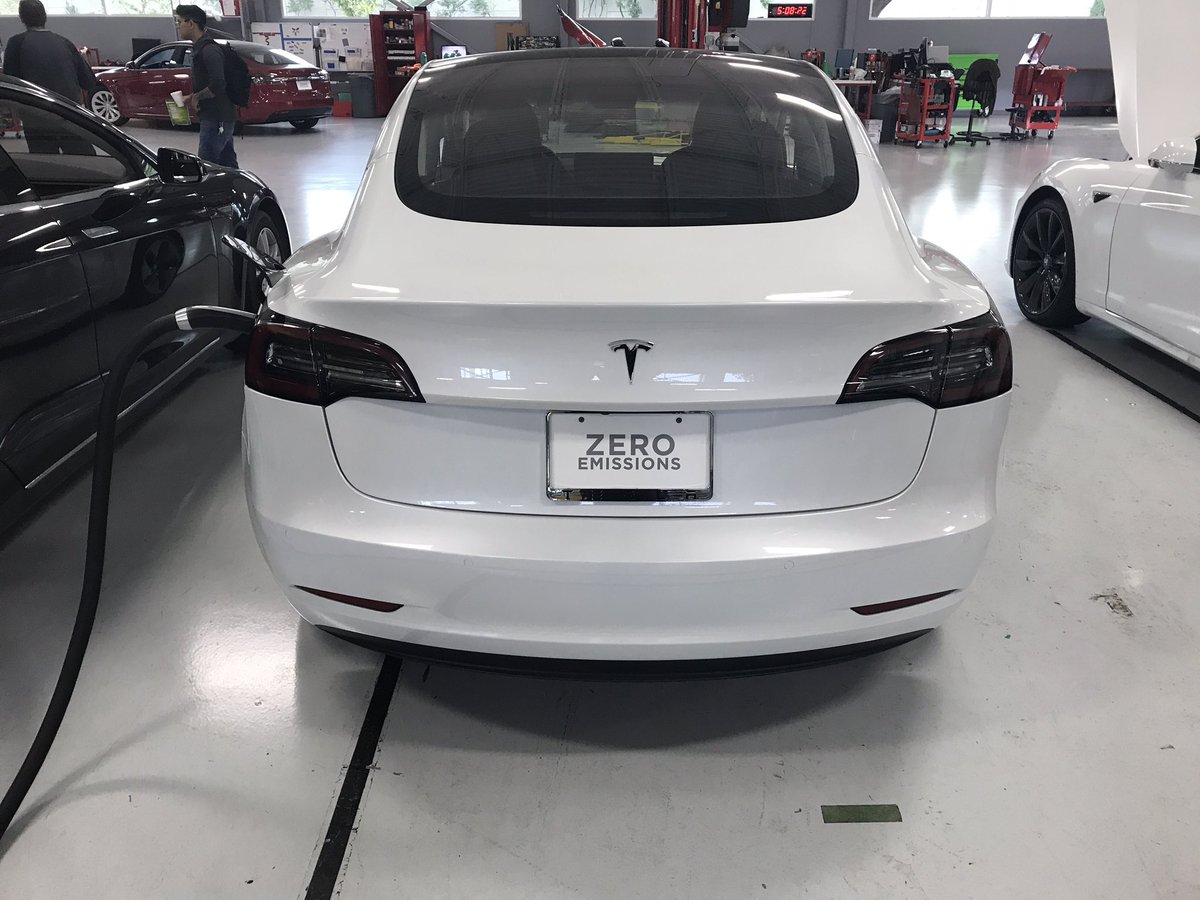

News
Republican party in Texas backs Tesla sales plan
Opposition to direct sales to consumers may be weakening in Texas. The state Republican Party has include a plank in its political platform backing Tesla’s bid. 90% of Republican representatives say they are in favor of the change.
Texas is a red state through and through. The Republican Party is strong there, but it is also a place where people have a strong libertarian streak. Many oppose to what is often considered meddling in private affairs by government. Last week , state GOP convention delegates in Texas endorsed the idea of allowing Tesla to sell its cars directly to customers, despite bitter opposition. Nearly 90% of the more than 8,000 delegates supported language in the party platform that backs Tesla.
The platform committee rejected pleas by U.S. Rep. Roger Williams and former Republican national committeeman Bill Crocker to strip the pro-Tesla language from the platform. Williams is a car dealer, and Crocker is a lawyer who represents car dealers. Williams personally called all five members of the platform subcommittee on the economy according to its chairman, Alan Arvello. When asked about the calls by the Dallas Morning News, a spokesperson for Williams said, “Like all Members of Congress, Rep. Williams uses his spare time to help support his political party.” Uh huh.
The position taken by the Texas automobile dealers has been successful so far at preventing a change in state law to allow Tesla to sell cars directly to customers. As things stand at the moment, customers can look at a Tesla car in one of the company’s three “galleries” in Dallas, Houston and Austin, but can’t test drive them without an appointment.
They also can’t buy the cars onsite. A Tesla employee can discuss the technology but cannot discuss price, take orders or direct the customer to the company’s website. Test drives are only permitted on Thursday, Friday, or Saturday. Even then, the company must get a test permit first.
The only way to buy a Tesla in Texas is to order online. The car will arrive registered in California, which means the customer has to re-register it in Texas. To have a Tesla worked on at one of the company’s four maintenance centers in Texas, service calls must be routed through the company’s California offices. Tesla says Texas is one of only five states with such a burdensome process.
But things are changing. Younger shoppers are less impressed with the state’s heavy handed approach to Tesla. They see little difference between a Tesla and an Apple product. Their libertarian leanings are offended by how the state has dealt with Tesla these past 3 years.
David White, Tesla’s Texas spokesman, said he and two others working in the company’s booth at the Dallas convention spoke to thousands of delegates last week. Many were surprised to learn of barriers the Legislature has imposed that limit “open competition” in car sales, he said. “If Texas is truly ‘wide open’ for business, our elected officials should take the appropriate steps to end these frivolous regulations in 2017,” White said.
Arvello, chairman of the platform subcommittee and a physician assistant, said the pressure from Williams and Crocker seemed to backfire. “The more we were getting calls and having people try to influence us to vote against it, just some of that Texas emotion took over from my committee,” he said. “It was like, we’re going to do this!”
2017 may be the year when Tesla is finally victorious in its battle to sell directly to customers in Texas.
Source and photo credit: Dallas Morning News

News
Tesla showroom in Oregon gets shot up for second time in a week
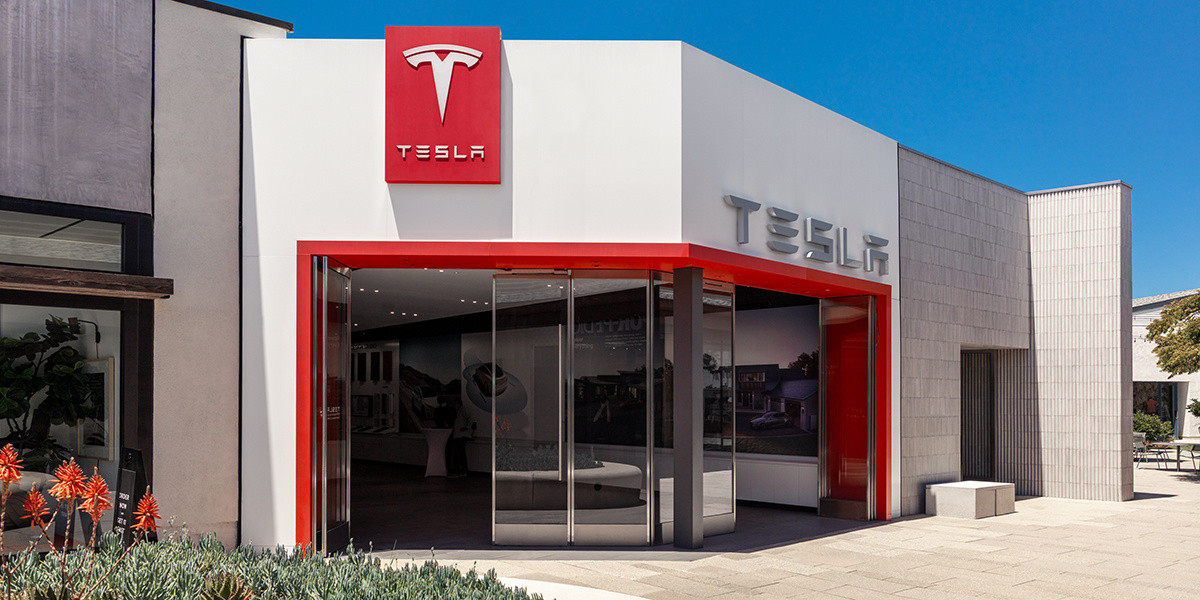
A Tesla showroom in Oregon has gotten shot up by gunfire for the second time in a week, police say.
The Tesla showroom located on Southwest Cascade Ave. in Tigard, Oregon, was riddled with gunfire sometime in the early morning hours on Thursday.
Police received a call and responded to the location at about 4:15 a.m. local time; a security guard contacted law enforcement after noticing damage while patrolling the area.
Police said to FOX12, a local news outlet, that between 10 and 15 shots were fired at the building. Cars and the building were struck. It was reported as “extensive damage.”
Police are investigating a 2nd shooting at a Tigard Tesla dealership in a week. They say the shooting was reported just after 4:15 this morning. Around 10-15 shots and they say there is extensive damage to the building and vehicles. @fox12oregon pic.twitter.com/uiJgiILXnj
— Drew Reeves (@DrewReevesTV) March 13, 2025
This is the same dealership that was lit up by those who are protesting CEO Elon Musk and Tesla as a company on March 6. Three cars and the showroom were struck by seven bullets.
It is not the only showroom to report major damage from vandals who are voicing political disagreements through violence and damage. Another showroom in Oregon was lit up by a Molotov cocktail, but that suspect was spotted and arrested.
However, police say they have no leads in the case of the Tigard dealership, as both instances have led to no real idea as to who exactly is the perpetrator of these attacks.
Earlier this week, President Donald Trump announced that any instances of violence or vandalism against Tesla vehicles, owners, or company property would be addressed as an act of domestic terrorism.
The pushback against Musk and Tesla has been eye-opening, as owners across the world are reporting instances of their vehicles being vandalized by those who oppose the points and perspectives of the CEO.
News
Tesla gets request to bid on State-used vehicles: ‘We aren’t going to bow to woke trends’
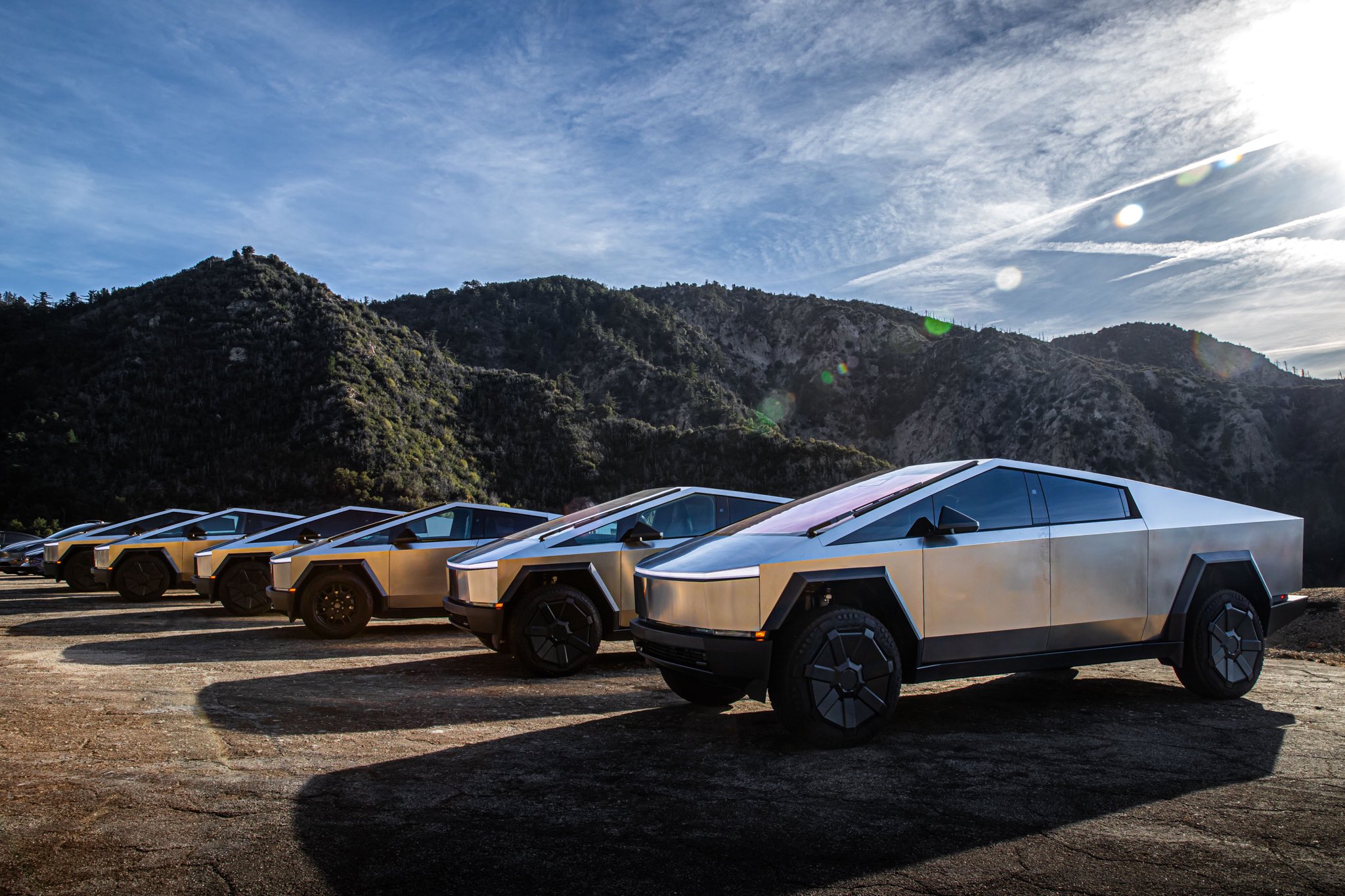
Tesla has been invited to bid to provide its vehicles for State-sponsored usage in Israel, a new report from local media says, not caring about the pushback the company has received for its CEO Elon Musk’s work with President Donald Trump.
Israeli government officials are seeking a fleet of vehicles to be used by the top officials in the area. A new report from JNS states that sources revealed to it on Thursday that Tesla was one company the government requested a bid from because they believe their cars are “great.”
According to a senior official in the Israeli government, they are not worried about the thoughts of those who are “woke,” because they want a safe and quality vehicle:
“We aren’t going to bow to woke trends. A car is a car is a car. And a great car is a great car is a great car. Teslas are great cars and we look forward to studying their bid.”
Tesla seems to be an ally of the Israelis, especially considering Prime Minister Benjamin Netanyahu’s comments on the CEO during the Presidential Inauguration on January 20:
“Elon is a great friend of Israel. He visited Israel after the October 7, [2023], massacre in which Hamas terrorists committed the worst atrocity against the Jewish people since the Holocaust. He has since repeatedly and forcefully supported Israel’s right to defend itself against genocidal terrorists and regimes who seek to annihilate the one and only Jewish state.”
Tesla has gained plenty of attention from governments in terms of fleets of vehicles in recent months.
Not only did Israel express interest, but there was some indication that the United States was interested in using Tesla EVs for a fleet of armored vehicles back in January as State Department documents indicated the company would be in prime position to win a contract to be awarded later this year.
Ultimately, Tesla’s name was removed from the State Department list after some uproar.
As far as the Israeli contract goes, there is no indication of what other companies might have been invited to bid on the fleet.
News
Elon Musk slams MSNBC for relating Trump’s terrorism warning to Tesla “protests”
“So just to be clear, you protest a private company, you are labeled by this administration a domestic terrorist,” MSNBC noted.

Tesla CEO Elon Musk has sharp words for MSNBC after the media outlet related U.S. President Donald Trump’s warning about attacks on the electric vehicle maker and its customers to acts of protest.
As per Musk, such a relation is insane, as extreme actions that have been taken against Tesla are not legitimate forms of protest.
Tesla Attacks
Amidst Elon Musk’s work with the Trump administration and his increasingly political nature, attacks against Tesla have seen a notable rise in the past months. Tesla showrooms have been shot up, vandalized, and set on fire in acts of alleged arson. Supercharger stations have also been set on fire. One Tesla store was even attacked with Molotov cocktails.
Worse, even private Tesla owners have seen their vehicles get attacked by vandals and critics. One Cybertruck owner noted on social media that one of his passengers actually got physically hurt when an anti-Tesla activist attacked his all-electric pickup truck.
In response to these attacks, Trump shared a stern warning to would-be Tesla attackers. As per Trump, anyone that hurts an American company, “especially a company like this that supplies so many jobs that others are unable to do,” will go through hell when they are apprehended.
MSNBC’s Response
In a segment, MSNBC framed the U.S. President’s warning as Trump simply looking out for a fellow billionaire—one whose company is failing. Interestingly enough, the media outlet’s hosts and panel did not mention or acknowledge any of the violent and dangerous attacks that have been directed at Tesla and Tesla owners as of late.
“You also, overnight, have his post claiming that protests at Tesla dealerships are illegal. He (Trump) said today he would label violence against dealerships domestic terrorism… So just to be clear, you protest a private company, you are labeled by this administration a domestic terrorist,” MSNBC noted.
Musk Strikes Back
Musk did not mince words in his criticism of the media outlet. In response to a video shared on X of MSNBC’s segment, Musk wrote, “Wow, they’re totally insane.” Musk also clarified the rather simple distinction that while peaceful protests are no issue, shooting Tesla stores and burning Superchargers are a step too far.
“Death threats, shooting up Tesla stores, and burning down Superchargers are definitely not “legitimate forms of protest!”” Musk wrote in his post.
-
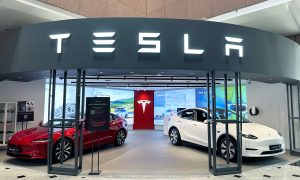
 News6 days ago
News6 days agoTesla at risk of 95% crash, claims billionaire hedge fund manager
-
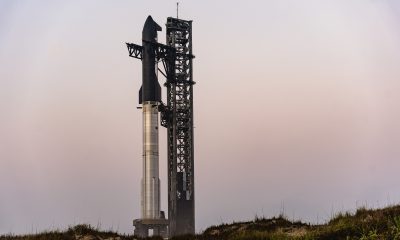
 News1 week ago
News1 week agoSpaceX announces Starship Flight 8’s new target date
-
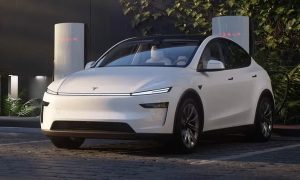
 News6 days ago
News6 days agoTesla contract with Baltimore paused after city ‘decided to go in a different direction’
-
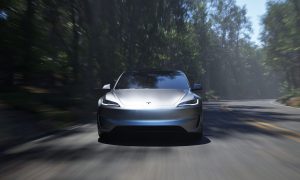
 News1 week ago
News1 week agoTesla launches fresh U.S. promotions for the Model 3
-
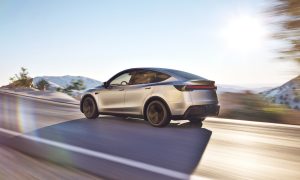
 Elon Musk1 week ago
Elon Musk1 week agoTesla mulls adding a new feature to fight off vandals as anti-Musk protests increase
-
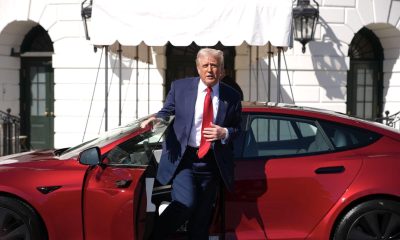
 Elon Musk2 days ago
Elon Musk2 days agoPresident Donald Trump buys a Tesla at the White House – Here’s which model he chose
-
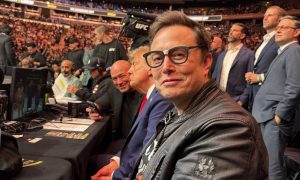
 Elon Musk1 week ago
Elon Musk1 week agoTesla UK sales up over 20% despite Elon Musk backlash
-

 News2 days ago
News2 days agoElon Musk comments on Tesla’s massive Monday stock slide






